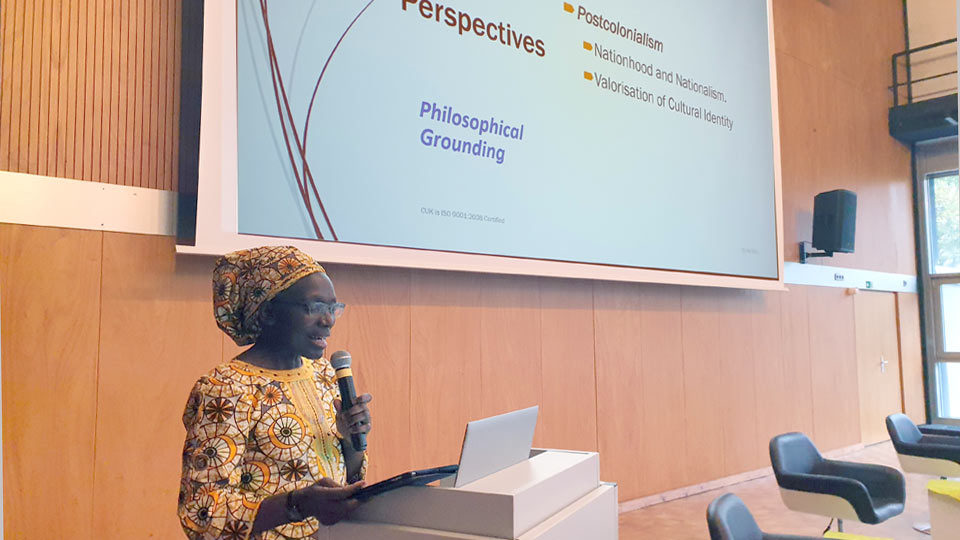Conference in Remscheid brings together international perspectives
On October 21 and 22, the Academy of Arts Education invited to an international conference in Remscheid. Experts from Africa, Europe and Asia discussed different perspectives and injustices in cultural education and cultural considerations during the hybrid conference "Global Learning in Postcolonial Times". The conference was organized by the Academy together with the Kulturstiftung der Länder and the European Network of Observatories in the Field of Arts and Cultural Education (ENO).
On the first day, the conference first addressed the two topics of global learning and postcolonialism in lectures and panel discussions. While postcolonialism is linked to anti-imperialist movements and is directed against the prevailing ethnocentrism and Eurocentrism, global learning is an educational approach that aims at an internationalized, holistic and multi-perspective view.
To this end, the conference brought in perspectives from the Global South in particular, in order to break away from existing approaches to cultural education and to jointly rethink Eurocentric attitudes. Guests included theater director Samuel Ravengai and educationalist Lesley Le Grange, both of whom teach in South Africa, Malaysian writer Charlene Rajendran, Kenyan music professor Emily Achieng Akuno, and the coordinator of EVC in Germany, Ernst Wagner. The latter gave an overview of the EVC project, clarified the theoretical basis for this project and drew first conclusions.
The experts took both approaches to assess their impact on the arts and develop a new perspectives for arts education. Building on this, on the second day they discussed approaches to how cultural education can be rethought in the future - globally, equitably and strength-oriented. The multi-perspective consideration of cultural history and art came up as well as possible guidelines that can offer orientation in the selection of cultural forms of expression in the educational context.
"It is important to become aware of discrimination and violations of third parties in one's own actions. However, to see dealing with diversity only as a source of error leads to seeing diversity as a burden and not as a potential. Only if we make diversity a positive process of experience, we can exploit its potential in a strength-oriented and creative way. Cultural education can make a fundamental contribution to this by making options visible and making it clear that it is a matter of permanent negotiation processes," Prof. Dr. Susanne Keuchel, Director of the Academy of Arts Education, stressed in her introduction.
Prof. Dr. Markus Hilgert, Secretary General of the Kulturstiftung der Länder, added: "Overcoming Eurocentric power and thought structures can only succeed if social, cultural and economic consequences of the colonial era, which reach into the present, are made visible and conscious. For this, it is important that we come to an understanding together with the people and societies concerned about a holistic, global perspective that finds its way into cultural education."
Source: Press release (in German - PDF)
Further information: https://kulturellebildung.de/eno-conference-2021

